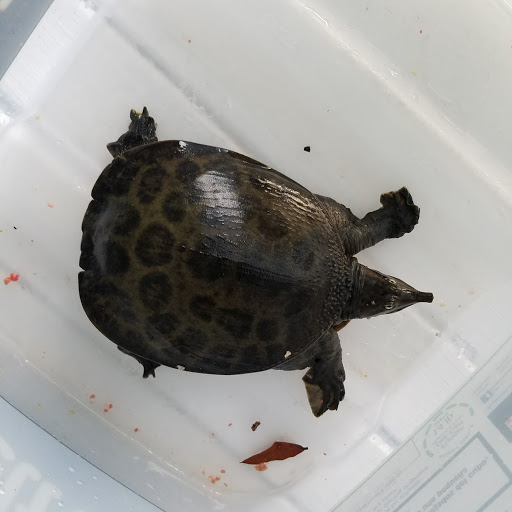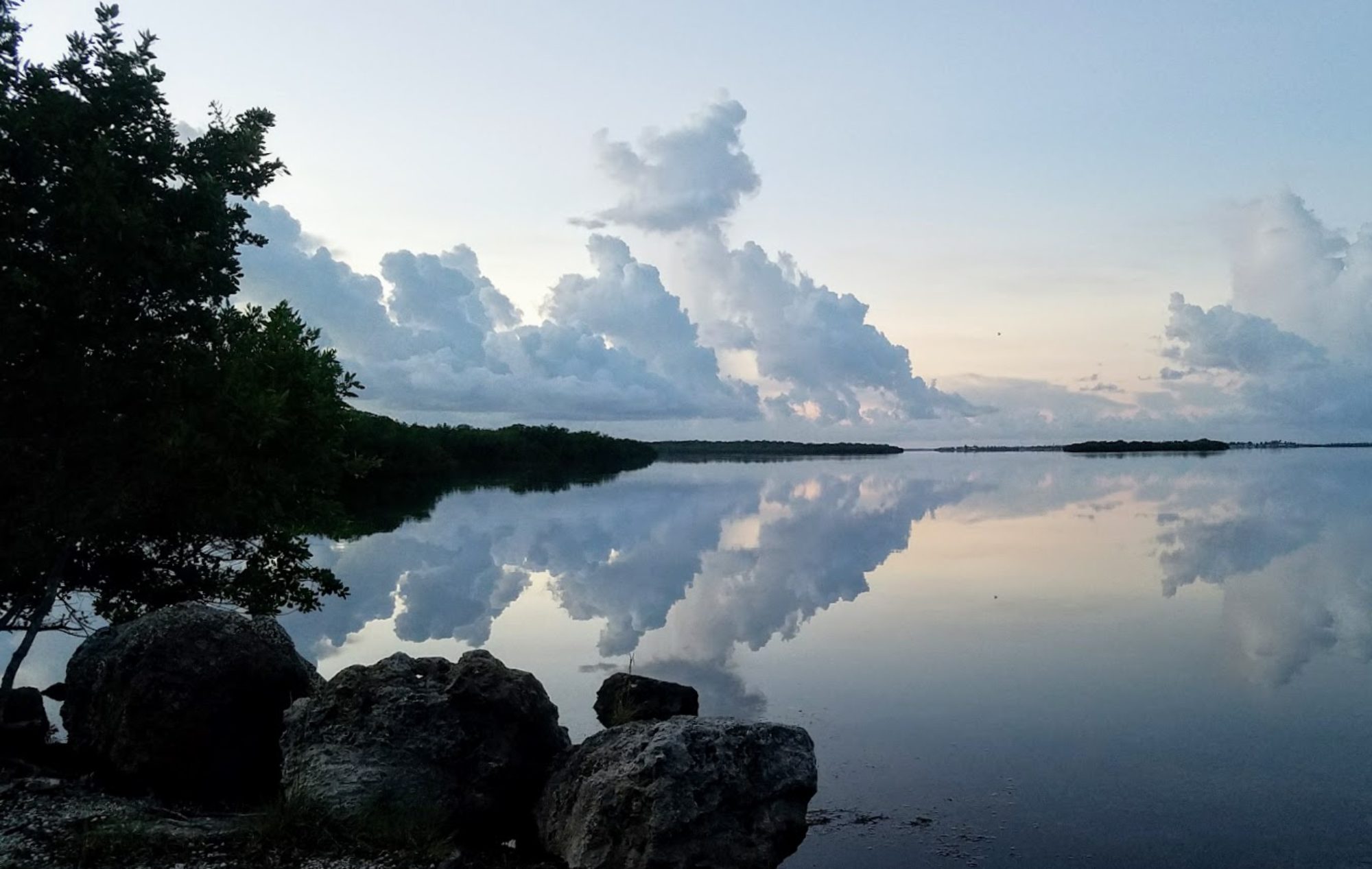
We find them often in the pool: flat turtles with leathery shells, long necks and odd noses. Sometimes the shells have a subtle pattern that looks like dark stains left on a dark green tablecloth. . . maybe last year’s Thanksgiving gravy that never really came out in the laundry. Sometimes they are over a foot long, but once Steve rescued what must have been a young turtle, less than 6 inches from nose to tail. We put them in a large bucket and relocate them to Lake Eustis. If I were a turtle in need of rescue, I would want Steve to find me and put me in a lake because he wonders about turtles he has saved for long after I have forgotten them.
Florida is home to many freshwater turtles, and the state regulates turtle protection and conservation. No turtles taken from the wild may be sold. Alligator snapping turtles (Macrochelys temminckii), Barbour’s map turtles (Graptemys barbouri), and Suwannee cooters (Pseudemys suwanniensis) are listed as Florida imperiled species and may not be taken or possessed. Some other turtles, including Cooters (Pseudymys sp.), snapping turtles (Chelydra serpentine), and the Escambia map turtle (Graptemys ernsti) may not be taken because they look so much like the imperiled turtles.
Freshwater turtles not listed above may be harvested (one turtle per day for personal consumption only, August 1 – April 30), but their eggs may never be collected. During nesting season these turtles may not be collected. These limited restrictions are meant to protect the population of turtles, which are very popular.
In January of 2018, freshwater turtles were noticed dead in the St. Johns River. Dead and dying turtles have also been noticed in Putnam, Seminole, Brevard, Flagler, and Orange County rivers. The turtles do not appear to be injured, have no lesions, and it is not clear what is causing them to become sick and die. Most of the turtles are Florida softshell turtles, but cooters are also part of the die-off. Cooters, if you are not familiar with them, are the turtles that line up on fallen trees alongside the riverbanks. They often extend their legs fully while the bask; I call this “jazz hands” and it always makes me happy to see those ridiculous legs sticking out before they launch themselves into the river as I pass in my kayak.
Freshwater turtles are important to the health of freshwater ecosystems and are considered indicator species for water quality and health. Florida is home to three native species of softshell turtle, including the Florida softshell (Apalone ferox), Gulf Coast smooth softshell (Apalone calvata), and Gulf Coast spiny softshell (Apalone spinifera).
FWC and University of Florida are working together to investigate the die-off. Several laboratories are analyzing tissue samples to determine what’s happening.
If you find a dead or dying turtle, please report it to the Fish Kill hotline (800-636-0511) or report it at www.myFWC.com/Fishkill. FWC also has an app for mobile devices that can be used to report many wildlife issues.
